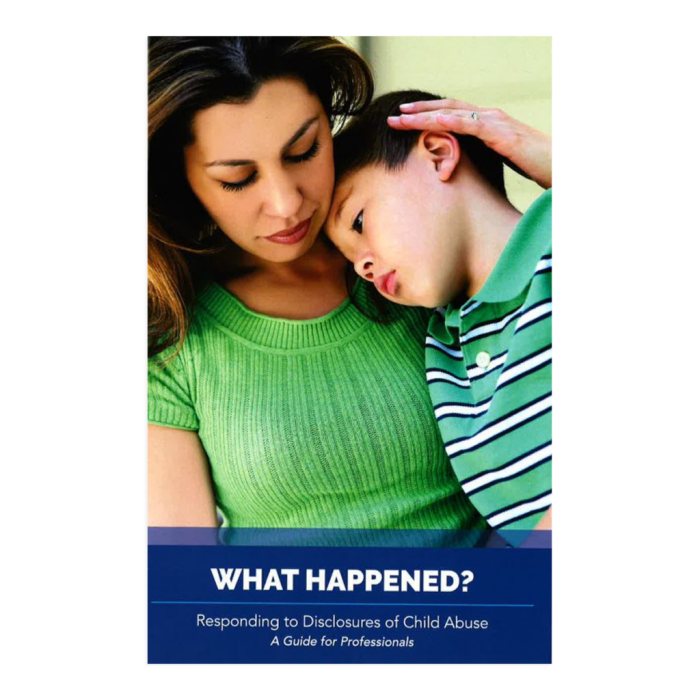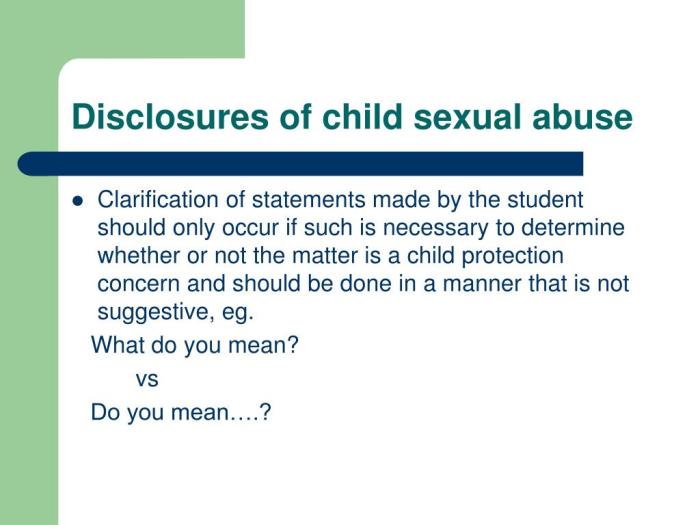Verbal disclosures of abuse should always be reported, as they constitute a serious threat to the victim’s well-being and can have far-reaching consequences for society as a whole. This article explores the ethical and legal obligations to report verbal abuse, examines the various types and impacts of verbal abuse, and Artikels the steps involved in reporting such incidents.
The content of the second paragraph that provides descriptive and clear information about the topic
Introduction: Verbal Disclosures Of Abuse Should Always Be Reported

Verbal disclosures of abuse are serious and should always be reported to the appropriate authorities. There are legal and ethical obligations to report abuse, and it is essential to ensure the safety and well-being of victims.
Types of Verbal Abuse
Verbal abuse can take many forms, including insults, threats, humiliation, and intimidation. It can be as damaging as physical abuse and can have long-lasting effects on the victim’s emotional and psychological health.
Examples of verbal abuse include:
- Calling someone names
- Making threats of violence
- Humiliating or belittling someone in front of others
- Intimidating someone with threats or gestures
Reporting Procedures
If you witness or experience verbal abuse, it is important to report it to the appropriate authorities. This may include law enforcement, child protective services, or mental health professionals.
When reporting abuse, it is important to provide as much detail as possible, including the date, time, location, and names of any witnesses. It is also important to keep a record of any evidence, such as text messages or emails.
Barriers to Reporting, Verbal disclosures of abuse should always be reported
There are many barriers to reporting verbal abuse, including fear of retaliation, shame, and lack of awareness. It is important to overcome these barriers and encourage victims to seek help.
Some strategies to overcome barriers to reporting include:
- Providing victims with information about their rights and options
- Creating a safe and supportive environment for victims to come forward
- Educating the public about the importance of reporting abuse
Consequences of Not Reporting
There are serious consequences to not reporting verbal abuse. Victims may continue to be abused, and the abuse may escalate to physical violence. In addition, unreported abuse can have a negative impact on the community as a whole.
Case studies have shown that unreported verbal abuse can lead to:
- Increased risk of physical harm
- Emotional distress and mental health problems
- Social isolation and relationship problems
Commonly Asked Questions
What are the legal obligations to report verbal abuse?
In many jurisdictions, there are legal obligations to report suspected child abuse or abuse of vulnerable adults. These obligations vary depending on the specific laws of each jurisdiction.
What are the ethical obligations to report verbal abuse?
Healthcare professionals, teachers, and other professionals who work with children or vulnerable adults have an ethical obligation to report suspected abuse. This obligation is based on the principle of beneficence (doing good) and non-maleficence (avoiding harm).
What are the common barriers to reporting verbal abuse?
Common barriers to reporting verbal abuse include fear of retaliation, shame, and lack of awareness of reporting procedures.

